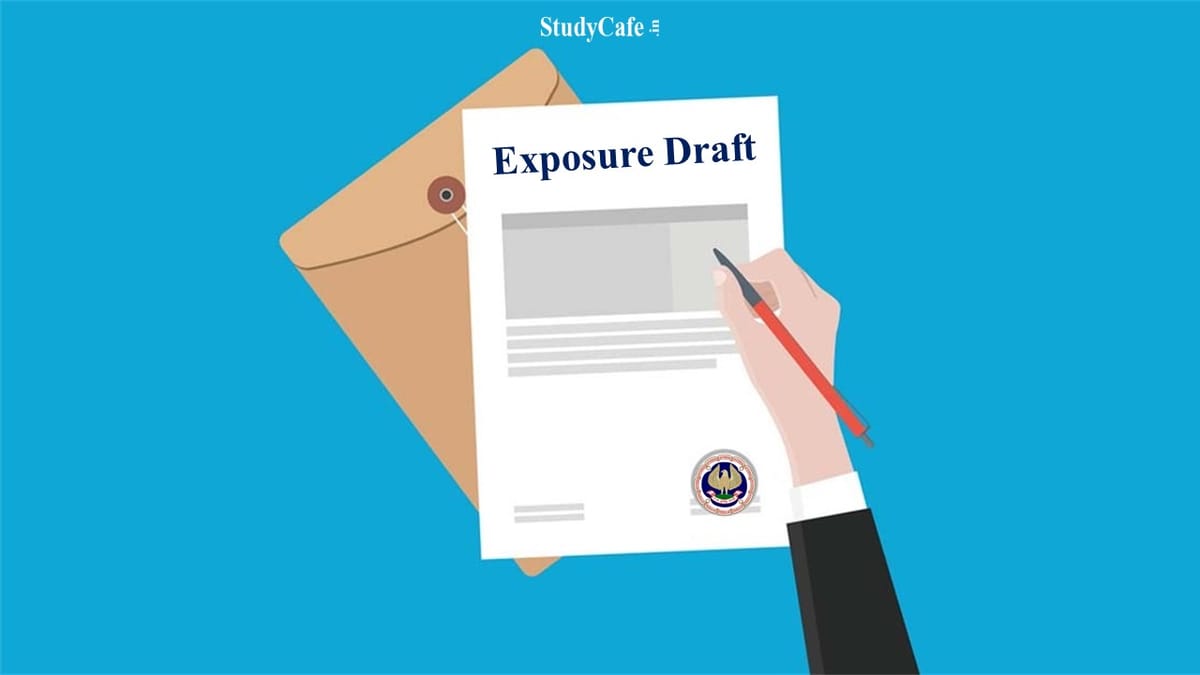Sushmita Goswami | Jun 8, 2022 |

ICAI Releases Exposure Draft Guidance Note on Companies (Auditor‟s Report) Order 2022
The Institute of Chartered Accountants of India (ICAI) has released an Exposure Draft Guidance Note on the Companies (Auditor‟s Report) Order, 2020 (Revised 2022 Edition).
The Text of the Guidance Note is Given Below:
1. The Central Government, in exercise of the powers conferred, under sub-section (11) of section 143 of the Companies Act, 2013 (hereinafter referred to as ―the Act‖), issued the Companies (Auditor‘s Report) Order, 2020, (CARO 2020/ ―the Order‖) vide Order number S.O. 849(E) dated 25th February 2020. CARO 2020 was initially applicable for audits of financial year 2019-20 and onwards. Subsequently, vide notifications dated 24th March 2020 and 17th December 2020, its applicability was deferred by one year each. Accordingly, CARO 2020 is applicable for audits of financial year 2021-22 and onwards. CARO 2020 contains certain matters on which the auditors of companies (except auditors of those categories of companies which are specifically exempted under the Order) have to make a statement in their audit reports. The text of the CARO 2020 is given in Appendix I to this Guidance Note.
2. This Order is in supersession of the earlier Order issued in 2016, viz., the Companies (Auditor‘s Report) Order, 2016 (CARO 2016). Appendix II to this Guidance Note contains a clause-by-clause comparison of the reporting requirements of the Order and the CARO 2016.
3. The purpose of this Guidance Note is to enable the auditors to comply with the reporting requirements of the Order. It should, however, be noted that the guidance contained in this Guidance Note is not intended to be exhaustive and the auditors should exercise their professional judgement and experience on various matters on which they are required to report under the Order.
4. The requirements of the Order are supplemental to the existing provisions of section 143 of the Act regarding the auditor‘s report. In this regard, the following points may be noted: (i) the provisions of sub-sections (1), (2), & (3) of section 143 are applicable to all companies (other than clause (i) of sub-section (3)) while the Order exempts certain categories of companies from its application; and
(ii) the provisions of sub-section (1) of section 143 require the auditor to make certain specific inquiries during the course of his audit. The auditor is, however, not required to report on any of the matters specified in that sub-section unless he has any special comments to make on the said matters. In other words, if the auditor is satisfied with the results of his inquiries, he has no further duty to report that he is so satisfied. The Order, on the other hand, requires a statement on each of the matters specified therein, as applicable to the company.
5. Another question that arises is about the status of the Order vis-a-vis the directions given by the Comptroller and Auditor General of India under section 143(5) of the Act. In this regard, it may be noted that the Order is supplemental to the directions given by the Comptroller and Auditor General of India under section 143(5) of the Act in respect of government companies. These directions continue to be in force. Therefore, in respect of government companies, the matters specified in the Order will form part of the auditor‘s report submitted to the members and the replies to the aforesaid questionnaire issued by the Comptroller and Auditor General of India will be governed by the requirements of section 143(5) of the Act.
6. The Order is not intended to limit the duties and responsibilities of auditors but only requires a statement to be included in the audit report in respect of the matters specified therein.
In case of any Doubt regarding Membership you can mail us at contact@studycafe.in
Join Studycafe's WhatsApp Group or Telegram Channel for Latest Updates on Government Job, Sarkari Naukri, Private Jobs, Income Tax, GST, Companies Act, Judgements and CA, CS, ICWA, and MUCH MORE!"